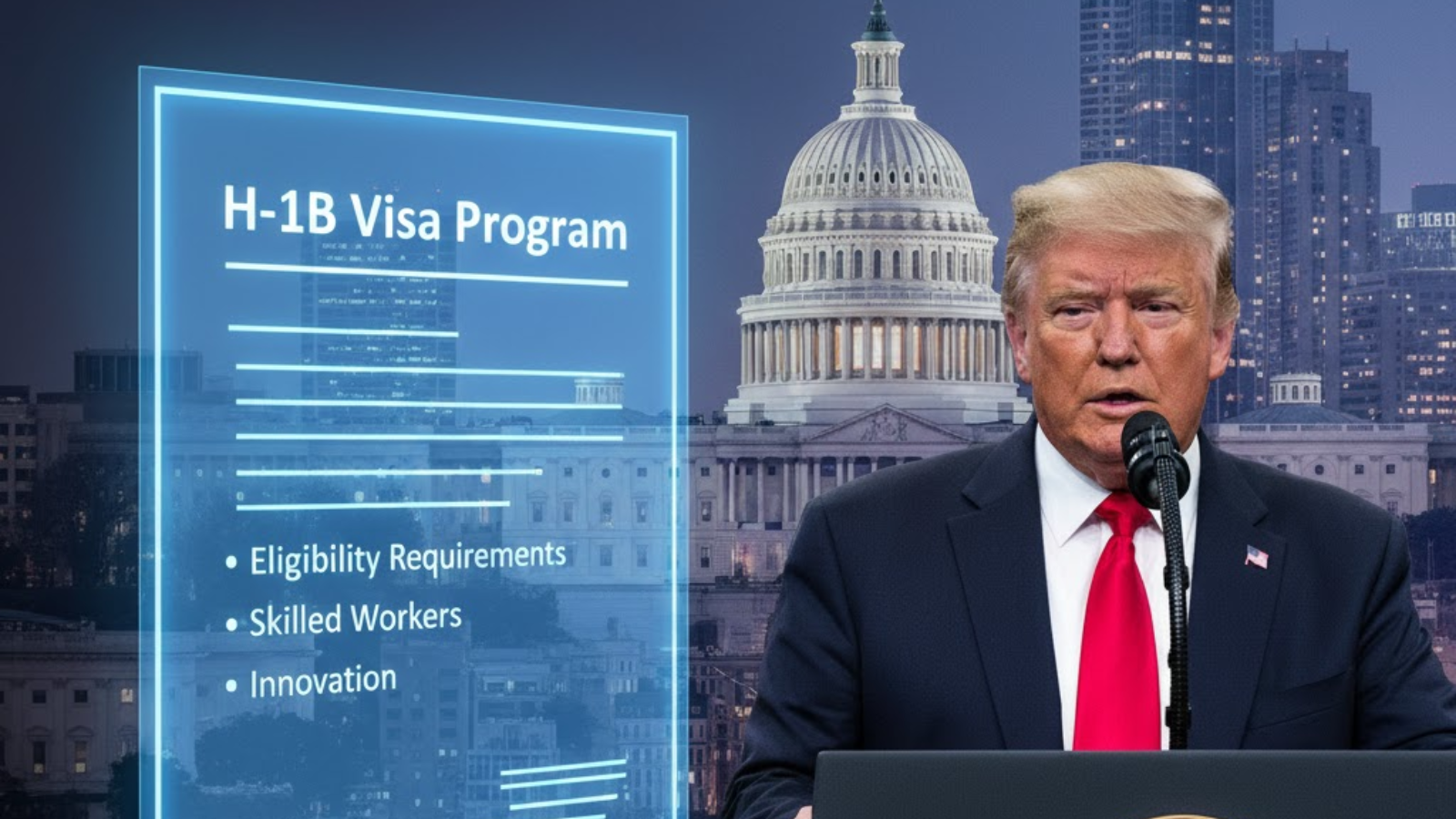Trump Administration Plans Major H-1B Visa Overhaul: Stricter Rules, Higher Fees on the Horizon
Trump Administration Targets Major H-1B Visa Overhaul
In a major policy shake-up, the Donald Trump administration is preparing to introduce sweeping changes to the H-1B visa programme, including a $100,000 mandatory fee and tighter eligibility norms for both employers and foreign professionals.

The U.S. Department of Homeland Security (DHS) has outlined the proposed reforms under a rule titled 'Reforming the H-1B Nonimmigrant Visa Classification Program’ in the Federal Register.
The proposed regulations seek to revise eligibility for cap exemptions, increase oversight on third-party placements, and scrutinise employers with past compliance violations, among other measures.
What May Change
While details remain under review, reports suggest that the DHS may also reconsider which employers qualify for cap exemptions, potentially affecting universities, nonprofit research bodies, and healthcare institutions that currently enjoy special status.
“These changes are intended to improve the integrity of the H-1B nonimmigrant program and better protect U.S. workers’ wages and working conditions,” the proposal stated.
You may also like
- NeGD sign pact to extend strategic advisory and technical support to Bharat Taxi
 Tyson Fury and Anthony Joshua question remains with heavyweight division set for shake-up
Tyson Fury and Anthony Joshua question remains with heavyweight division set for shake-up- Andhra: YSR Congress launches one crore signature campaign over privatisation of medical colleges
- American man tries 'best Sunday roast in UK' and gives honest opinion
- Hinjawadi IT Employees, Residents To Protest On Saturday After Fatal Accident
According to the regulatory notice, the rule could be finalised by December 2025, signaling a significant shift in how the U.S. manages skilled foreign workers.
Impact on Indian Professionals
The move could particularly affect Indian students and IT professionals, who make up the largest share of H-1B visa holders.
A Pew Research Center report found that nearly three-quarters of H-1B approvals in 2023 were granted to Indian nationals, with over 60% of visas going to those in computer-related occupations.
For many skilled Indians, the H-1B remains the only viable path to long-term U.S. employment and eventual permanent residency (green card).
H-1B at a Glance
Created under the 1990 Immigration Act, the H-1B programme allows U.S. employers to hire foreign professionals in specialised fields such as technology, healthcare, finance and academia.
Currently, the U.S. issues 65,000 H-1B visas annually, with an additional 20,000 reserved for applicants holding advanced U.S. degrees. Some employers, including universities and nonprofits, are exempt from these caps.
Past discussions within the Trump administration have explored replacing the current lottery-based system with a wage-based selection process, prioritizing higher-paying positions.
A High-Stakes Reform
Employers sponsoring H-1B workers are already required to pay government fees exceeding $6,000 and offer salaries that match or exceed the prevailing U.S. wage for comparable roles.
With the proposed $100,000 mandatory fee, companies may face a steep rise in costs, potentially discouraging smaller firms from hiring foreign talent.
As the U.S. government pushes for tighter immigration controls under the banner of ‘protecting American workers’, the new H-1B visa framework could redefine the future of global tech talent mobility especially for India’s vast skilled workforce that has long fueled America’s innovation engine.









